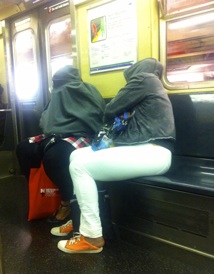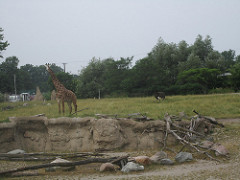Today, The Common is featuring two translated short stories from the book Nella Citta Nuda by Antonio Monda. The Common in the (Eternal) City on May 21 features Monda in conversation with Larissa MacFarquhar.
All posts tagged: Translation
from SANKYA
That winter they hired a small bus—Mother had suggested that Father should be buried in the village. Where he was born.
Sasha hadn’t argued.
“What do you think, son?” asked Mother in a completely unfamiliar tone. Until then, there had always been a man’s voice that had the final word in the house. Now, that voice was dead.
The Zoo
For every beast of the forest is mine,
and the cattle upon a thousand hills.
Ps. 50:10
. . . And the vixen ascends, staggering,
On all her cinnamon-colored fours.
And the bear shifts his vision forward,
As if it’s a hop-fingered hand.
thread your fingers through whole hinges
By ANNA GLAZOVA
thread your fingers through whole hinges
if the opening is blocked if there is no new
no old moon in the window.
the superior sun will never move
By ANNA GLAZOVA
the superior sun will never move
chained into itself by the moving heft.
for us the sun moves and pulls
the heft behind
The Act of Darkness
The dark-winged prostitutes at the bus station in Boston
Look like pleasure boats or better sharp-breasted bathing beauties
At full sail on the waters of Saint-Malo
But this analogy like cheap shorts is too tight
And chafes your thighs
Freefall in a Shattered Mirror
Lying suspended over a lake. She can see her entire self on the surface of the water. Every now and then circles appear and expand, distorting the image. At times she looks at her reflection with sadness, at times she chokes with bitterness and tries to escape, to turn over or stand in the air. But it’s no use, she is totally fixed—as if fastened with unseen ropes.
Thick fog passes underneath. When it shrouds the view below, she feels euphoric, she feels herself turn inside out, revealing attractive short hair and two ears with seven rings in each, revealing her perfectly feminine form. She is fragrant with the scent of lemon.
Everything is Filled with You
Translated by DON SHARE
Everything is filled with you,
and everything is filled with me:
the towns are full,
just as the cemeteries are full
of you, all the houses
are full of me, all the bodies.
Morgualos
Translated by DON SHARE
Morgualos love chimneys, white cotton shirts, the agapanthus, a tree called the seven-skin, the scent of fresh cilantro as it falls into soup, the sound of church bells, and days without clouds.
May 2013 Poetry Feature
Don Share published three poems, including “Wishbone,” the title poem of his newest collection, in the first issue of The Common. He’s been on a roll ever since, publishing five books as author, translator, or editor in the last year and a half. Here are a few selections from and links to those volumes:







